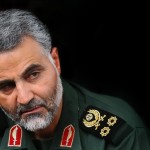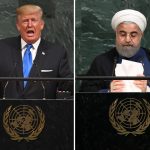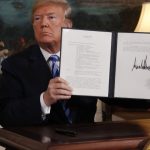News and views relevant to U.S.-Iran relations for November 6-8, 2010.
- AFP: Michael Comte reports on Sen. Lindsay Graham’s (R-SC) recent comments on China and Iran. The remarks included a call for “bold” action to deal with Iran and a statement which appeared to endorse military action against Iran’s nuclear program. “[If President Barack Obama] decides to be tough with Iran beyond sanctions, I think he is going to feel a lot of Republican support for the idea that we cannot let Iran develop a nuclear weapon,” he told the Halifax International Security Forum. “Containment is off the table,” Graham added. If the United States were to pursue a military option against Iran, Graham emphasized that it would be a war, “not to just neutralize their nuclear program, but to sink their navy, destroy their air force and deliver a decisive blow to the Revolutionary Guard, in other words neuter that regime.” Graham also warned that a “period of confrontation” with China over its “cheating” currency manipulation was drawing closer.
- The National Interest: George Washington University professor Hossein Askari argues that a nuclear enrichment agreement with Iran would only serve to lift some sanctions. Meanwhile, Tehran could continue secretly pursuing their nuclear program and “meddling in the region to pressure the United States.” Askari suggests negotiations and a fuel swap agreement are simply stalling tactics coming from a regime that views America as “their existential threat.” “The atomic issue is not America’s central problem with Iran, the regime is the problem, a fact that America must painfully acknowledge and so reorient its strategic interests,” says Askari. He concludes that the United States should support the opposition and reform movements within Iran, while expanding sanctions and freezing foreign bank accounts of Iranian citizens in excess of “say $1 million or $5 million.”
- National Review: National Review senior editor Jay Nordlinger laments that his warnings about the imminence of an Iran bomb have gone unnoted in the public discourse. Last year he interviewed former Director of National Intelligence John Negroponte, who opined that Iran would have a bomb by 2015. Believing he had a scoop, Nordlinger “put it here in the Corner. I put it in my web column. I put it in a piece for National Review (at the tippy-top). I put it everywhere but in concert and opera reviews.” Nordlinger writes, “And . . . nothing. No one commented, no one noticed — no one said, ‘Holy-moly!'” Casting himself as a prophet ignored, Nordlinger concludes: “Oh, well, it could be that the Iranian A-bomb is simply a foregone conclusion, or a topic that bores people. I fear it will not be so boring, when the mullahs go nuclear.”
- Jerusalem Post: Israeli Prime Minister Benjamin Netanyahu and U.S. Vice President Joe Biden met in New Orleans this weekend during the Jewish Federations of North America’s general assembly . Netanyahu reportedly told Biden, “The only way to ensure that Iran is not armed with nuclear weapons is to create a credible threat of military action against it, unless it stops its race to obtain nuclear weapons.” Netanyahu said paradoxically that a military threat was the only way to avoid war, and that he feared Western governments were falling into Tehran’s hands: “Iran is attempting to mislead the West and there are worrying signs that the international community is captivated by this mirage.”





Isnt it amazing how liberal interventionists are setting Obama to fail so they could replace him with Hillary?
At least this is what I sensed reading this Marty Peretz piece:
http://www.tnr.com/blog/the-spine/79001/was-the-gargantuan-loss-house-seats-democrats-massacre-or-just-disaster